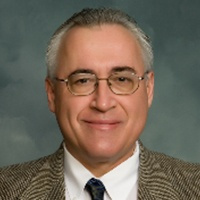Ossian Felony Lawyer, Indiana
Not enough matches for Ossian Felony lawyer.
Below are all Ossian Criminal lawyers.
Megan Lynn Close
✓ VERIFIEDCriminal, Divorce & Family Law, Estate, Traffic, Employment
Megan Close is a dedicated individual who commits her life and practice to the service of others. If you are looking for someone who you can trust, lo... (more)
Michael Richard McEntee
✓ VERIFIEDAccident & Injury, Workers' Compensation, Divorce & Family Law, DUI-DWI, Wills & Probate
General Practice and Workers Compensation since 1977
My name is Mike McEntee and I have been practicing law in Fort Wayne for over thirty years. I was born and raised here and my three children all went ... (more)
FREE CONSULTATION
CONTACTPatrick Ryan Miller
DUI-DWI, Felony, Misdemeanor, Criminal
Status: In Good Standing Licensed: 33 Years
Donald Carl Swanson
Health Care, Felony, Criminal, Bankruptcy
Status: In Good Standing Licensed: 51 Years



